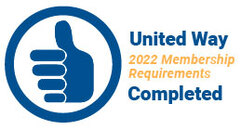|
In recent days we have heard a lot about collaboration. Scientists, physicians, and researchers are collaborating to develop a vaccine for COVID-19. Together they can learn more and learn faster than working on their own.
Musicians are collaborating (referred to as “Collab” by the hip crowd!) Even cultural dinosaurs like me remember musical collaborations such as “We are the World,” “Farm Aid,” and the Coca Cola campaign “I’d like to teach the world to sing.” I have learned about the power of collaboration during my terms as an AmeriCorps member. In the past, I have limited myself to only attempting that which I could complete on my own. I avoided many tasks, overwhelmed by my lack of knowledge or experience, not knowing how to even begin. Of course, I could find information on the internet, Googling how-to videos, muddling through, but even armed with my newly acquired knowledge, I balked at the complexity of the task. To quote a line from Gone with the Wind, “I don’t know nothing about birthing no babies!” But an important insight from my AmeriCorps work is that I don’t have to! When I work in collaboration with others, I bring what I know, others bring their knowledge and experience, and together we can accomplish great things for our community. Collaboration occurs when a group of people come together and share their expertise to achieve a common goal or purpose. Everyone brings strengths, skill sets, connections, and knowledge to the table. There is power in teamwork, networking and connections. None of us is as smart/strong/effective as all of us. Collaboration puts the United Way mantra to #LiveUnited into action. Collaboration makes it possible to achieve so much more than one person alone, sharing resources, information, and responsibility to make the work less overwhelming, and more effective. There are many benefits to collaboration. Collaboration brings people together for a common purpose, breaking down barriers and increasing connections. Collaboration increases problem solving by including a variety of perspectives. Collaboration opens up new avenues of communication, as well as opportunities to learn from each other. When tasks are large and complex, working together allows the work to be divided, sharing the burden, and seeing the problem/task more clearly. Collaboration increases sustainability and decreases burnout. In February of 2019, when the United Council on Opioids (UCO) began, I had no idea what we might be able to accomplish. The goals were lofty: to increase awareness and reduce the stigma of substance use, reduce the number of substance use deaths, and increase opportunities for treatment and recovery. The obstacles and complexity of the issue seemed insurmountable. But working together, the taskforce members brought ideas, enthusiasm, connections, resources, and information that move the work forward. The UCO is accomplishing its goals. The conversation and attitudes around substance use are changing. Our community is gaining an understanding of substance use and need for services to help our family members and friends recover from this this complex disease. As we continue to collaborate, deepening our connections, and expanding our communication, we will continue to increase momentum and move forward, not just on this issue, but on all important issues in our community.
0 Comments
Your comment will be posted after it is approved.
Leave a Reply. |
AuthorLynn Saylor is the AmeriCorps member working with the United Against Opioid Abuse Initiative alongside the White County United Way. She is a major facilitator of the United Council on Opioids serving White County and a regular contributor to local media. Archives
October 2020
Categories
All
|

 RSS Feed
RSS Feed
